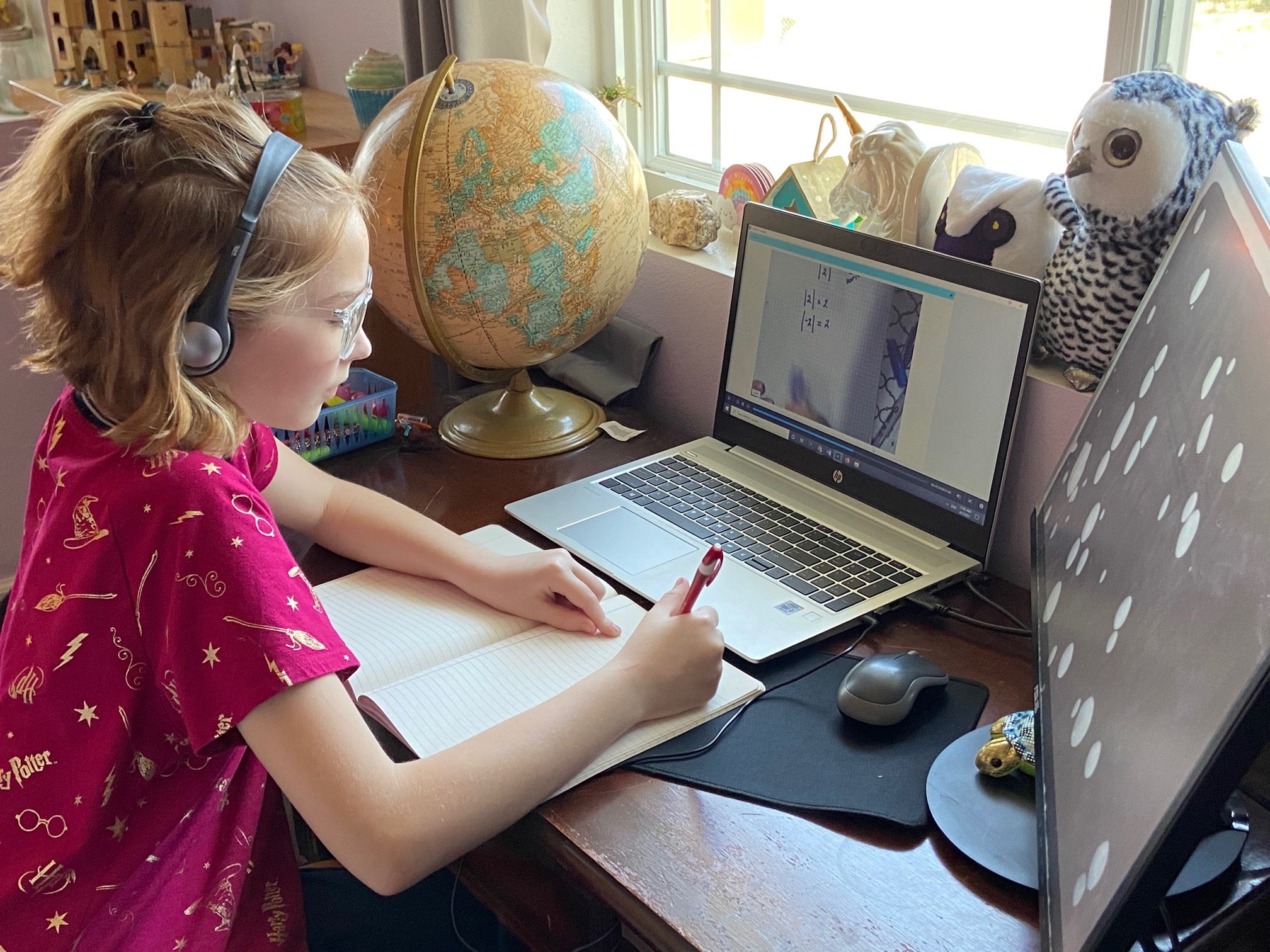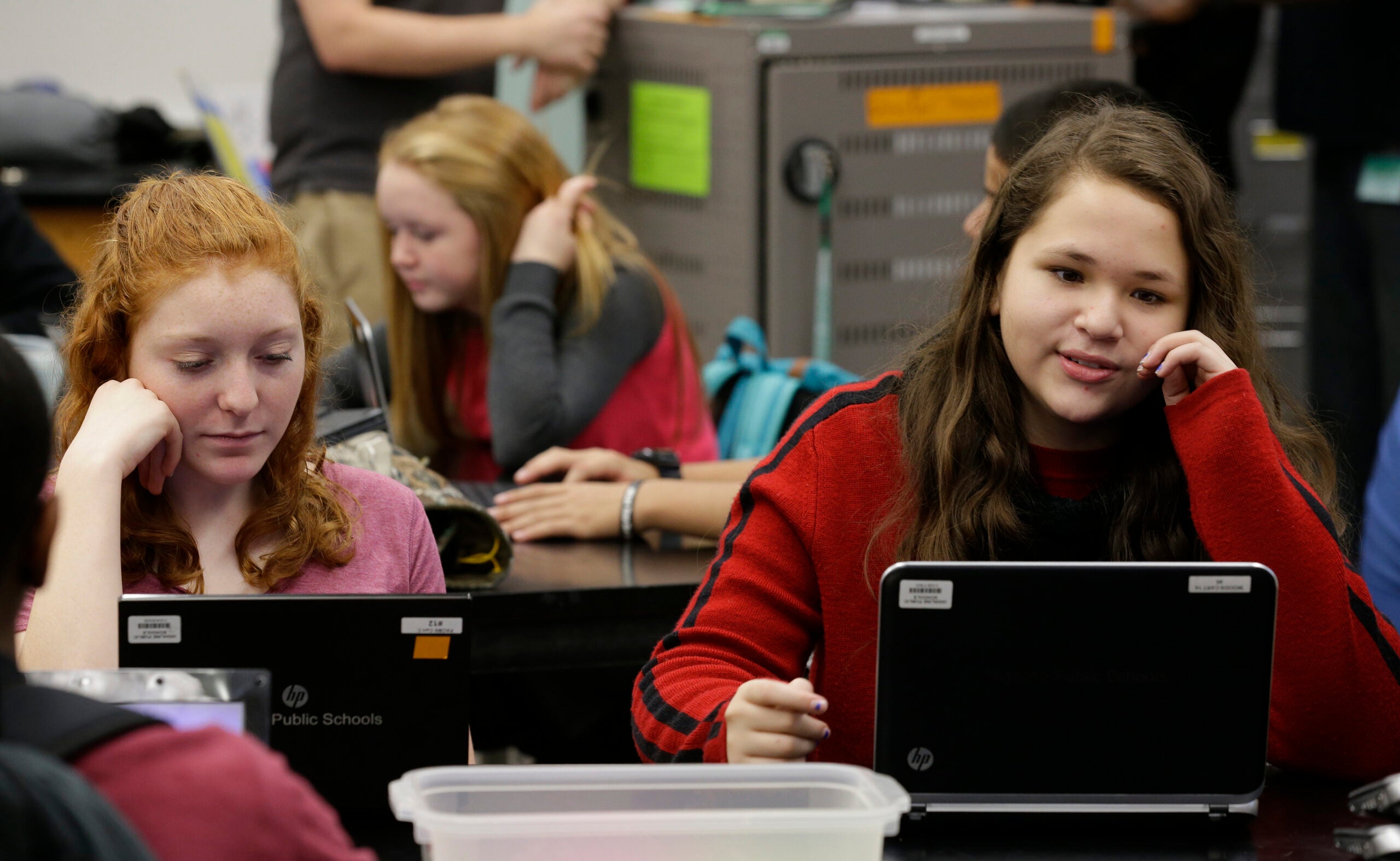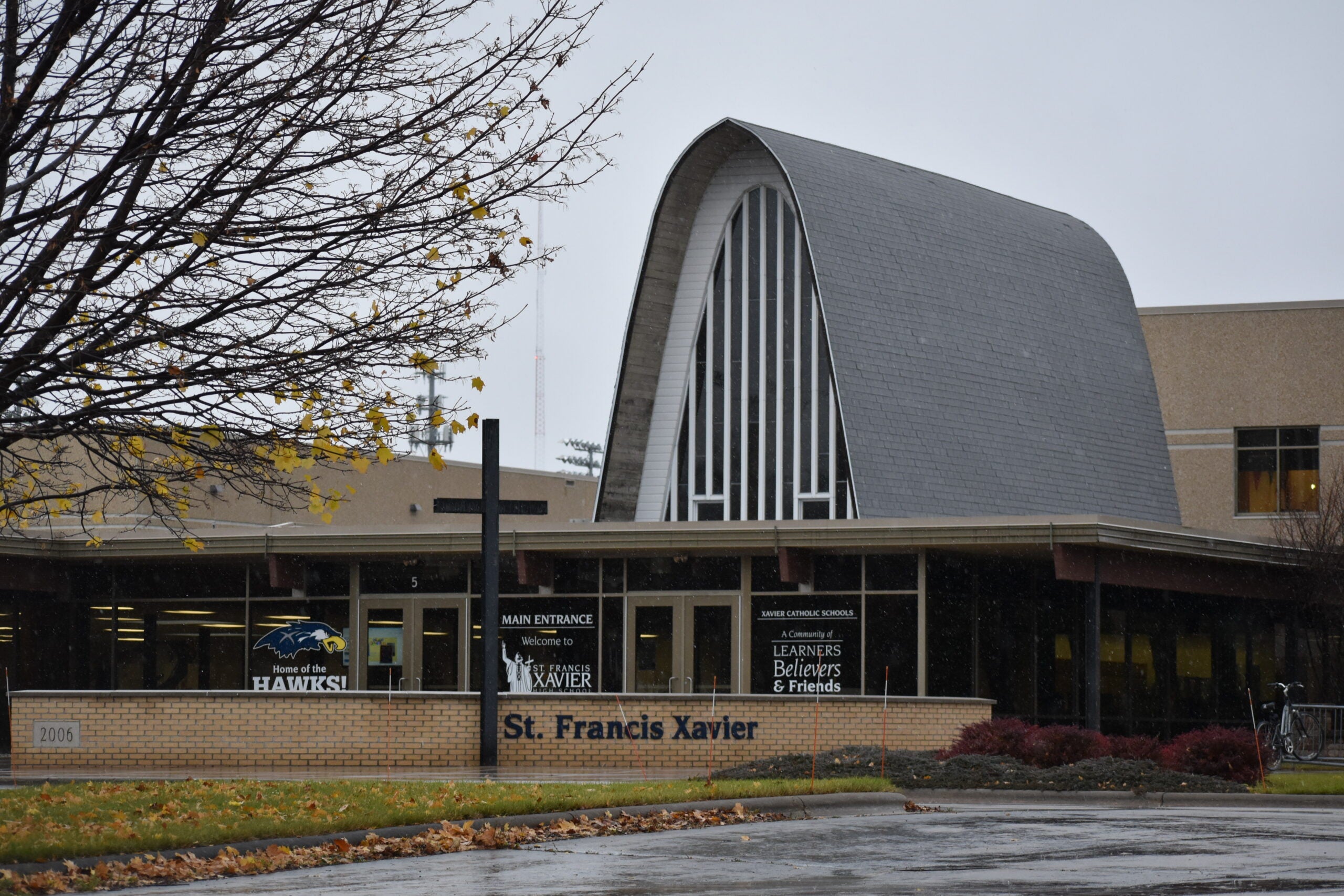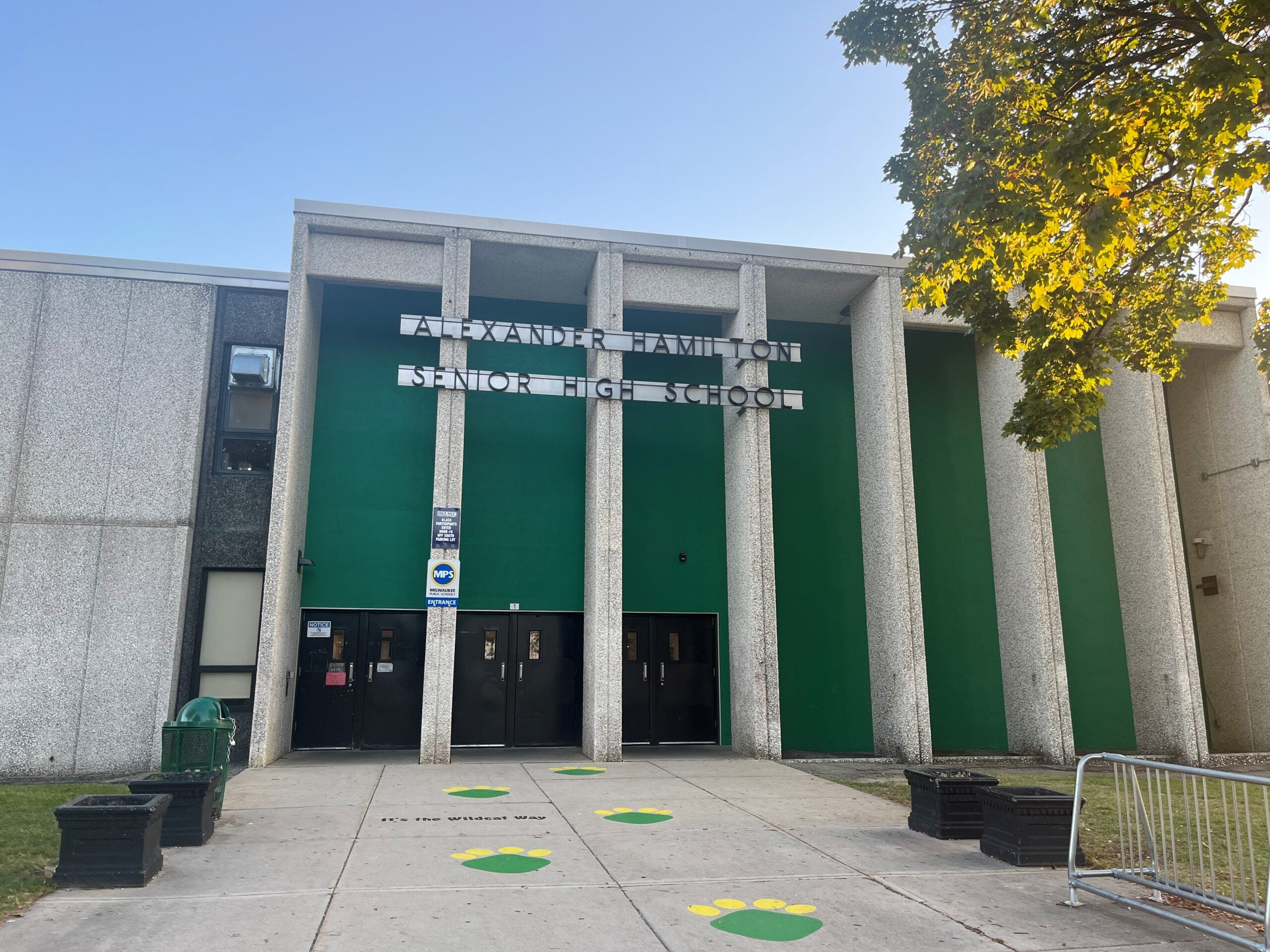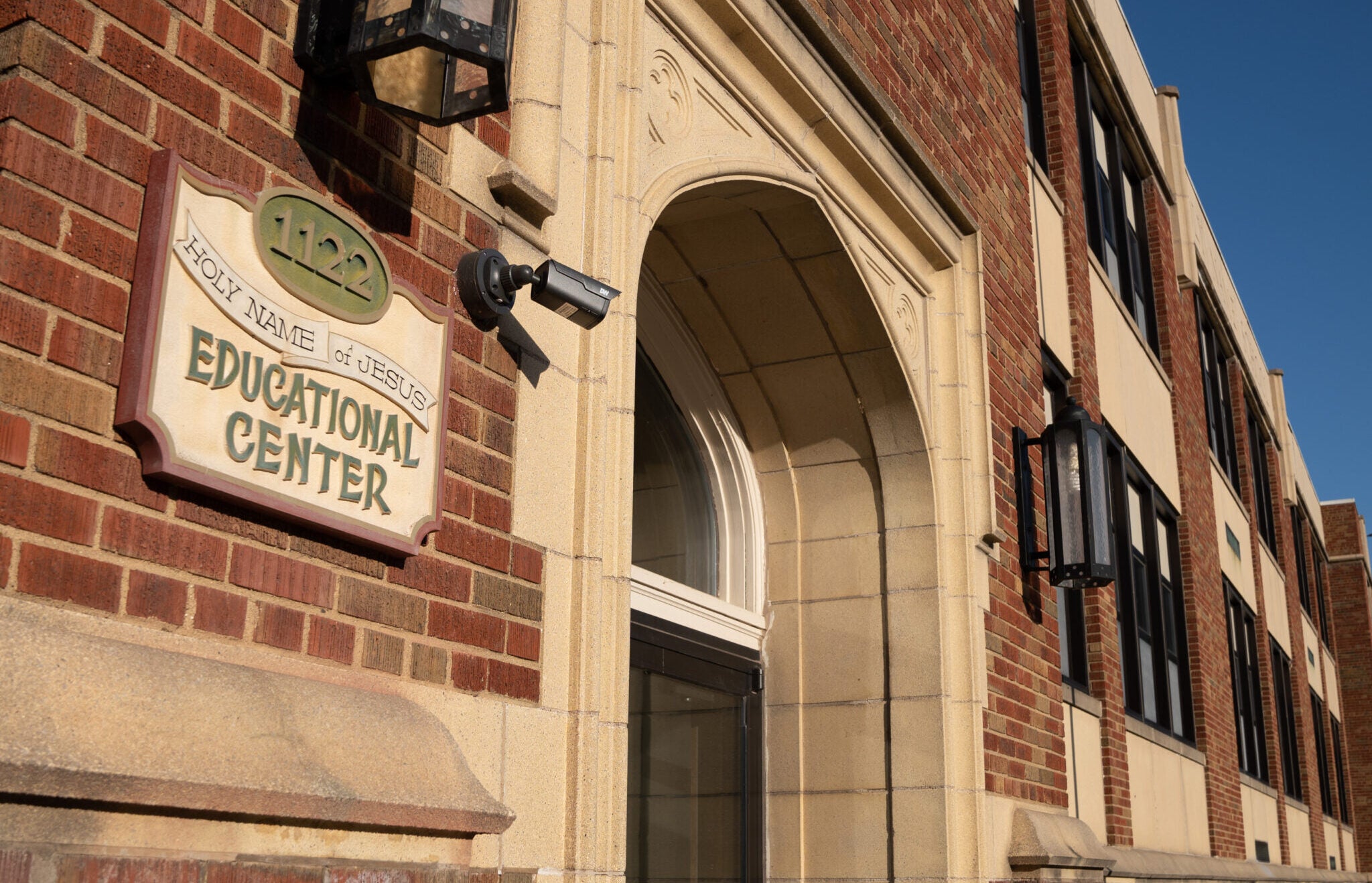This fall, Cally Ehle and her husband enrolled their two daughters at Wisconsin Connections Academy, mostly out of necessity.
“When the schools shut down, I know the school district did their best, the teachers did their best, but the curriculum just seemed to be lagging in what we wanted the kids to be learning,” she said. “My husband and I talked about it, and since I was working from home, we decided, for some stability for the kids, let’s try an actual online school.”
They figured a virtual charter school like WCA, which had more time to work out an online curriculum than the schools that had to quickly pivot, would be better for their girls — fifth-grader Becca and sixth-grader Cate — who had formerly been enrolled in the Stoughton district.
Stay informed on the latest news
Sign up for WPR’s email newsletter.
They weren’t alone — WCA’s enrollment doubled last year because of the pandemic, driven by families seeking a more established virtual option or a safer alternative to their all-in-person school, and virtual schools around the state saw a similar bump.
Online learning has been a challenge for many students. Some struggle with looking at a screen most of the day, or don’t do as well when they have to set their own pace. Some have structural hurdles — spotty internet, the lack of a quiet space to work at home, parents or guardians whose work doesn’t allow them to help when kids get stuck, caregiving responsibilities for younger siblings — that make it more difficult to focus on their schoolwork outside of a classroom setting.
But some Wisconsin families who would never have considered online learning before the pandemic have found that it’s a better fit for their students than traditional classrooms, and are reluctant to send them back to in-person school.
The Ehles had to make some adjustments. Cally, who used to commute to Madison for her work with Easter Seals Wisconsin, was able to work remotely, so she took on the “learning coach” role for her daughters’ online learning, a term the school uses for the parent or other caregiver who help supervise and guide their student’s learning. Their rural satellite internet was no match for two online learners and a remote worker, so they upgraded to a plan from one of their local cell phone providers. Figuring out the right pace in self-paced lessons took a little time, as well — as became clear the weekend before one of sixth-grader Cate’s math tests.
“One of the reasons we spent the entire weekend indoors — on a beautiful weekend — was because she had been kind of going through it way too fast on the lessons,” Ehle remembered. “So that was kind of a lesson for her. It’s like, ‘OK, in the future, math is a little bit more of a difficult subject for me, I need to slow down, and when I have questions, I need to go and ask.’”
Once they were through the hiccups, though, the girls thrived. Their second assessment tests showed substantial improvement over their first. Reading and writing, previously a struggle, became a joy.
“I’d catch them up in their rooms at night, writing their own little stories, and they were reading books all the time — I actually have to check in with them, take away the books that they’re reading for the day, so they’re not sneaking off and reading books when they’re supposed to be doing their schoolwork,” Ehle said.
The Ehles, aided by the fact that Cally can continue working from home, decided to keep their daughters at Wisconsin Connections Academy at least through the end of junior high, with plans to reassess once they’re ready for high school.
“My sixth grader, actually, one day came up to me and said, ‘Mom, I really like being in this school, I don’t want to leave this school, I want to stay in it. For the first time, I don’t feel dumb,’” Ehle said. “That really hit home with me.”
Before the pandemic, online schooling appealed mostly to students and families who needed a lot of flexibility, like students who competed in high-level athletics, acting, or otherwise needed a more portable education option. Because of COVID-19, more families got a taste of virtual learning, and although many families will be relieved to get their kids back in classrooms, some students have taken to virtual learning — especially those who are overwhelmed by the social aspect of school, or neurodivergent students who struggle with all the stimuli of a classroom.
Districts are now thinking about how to meet the needs of those students as schools move back to in-person instruction.
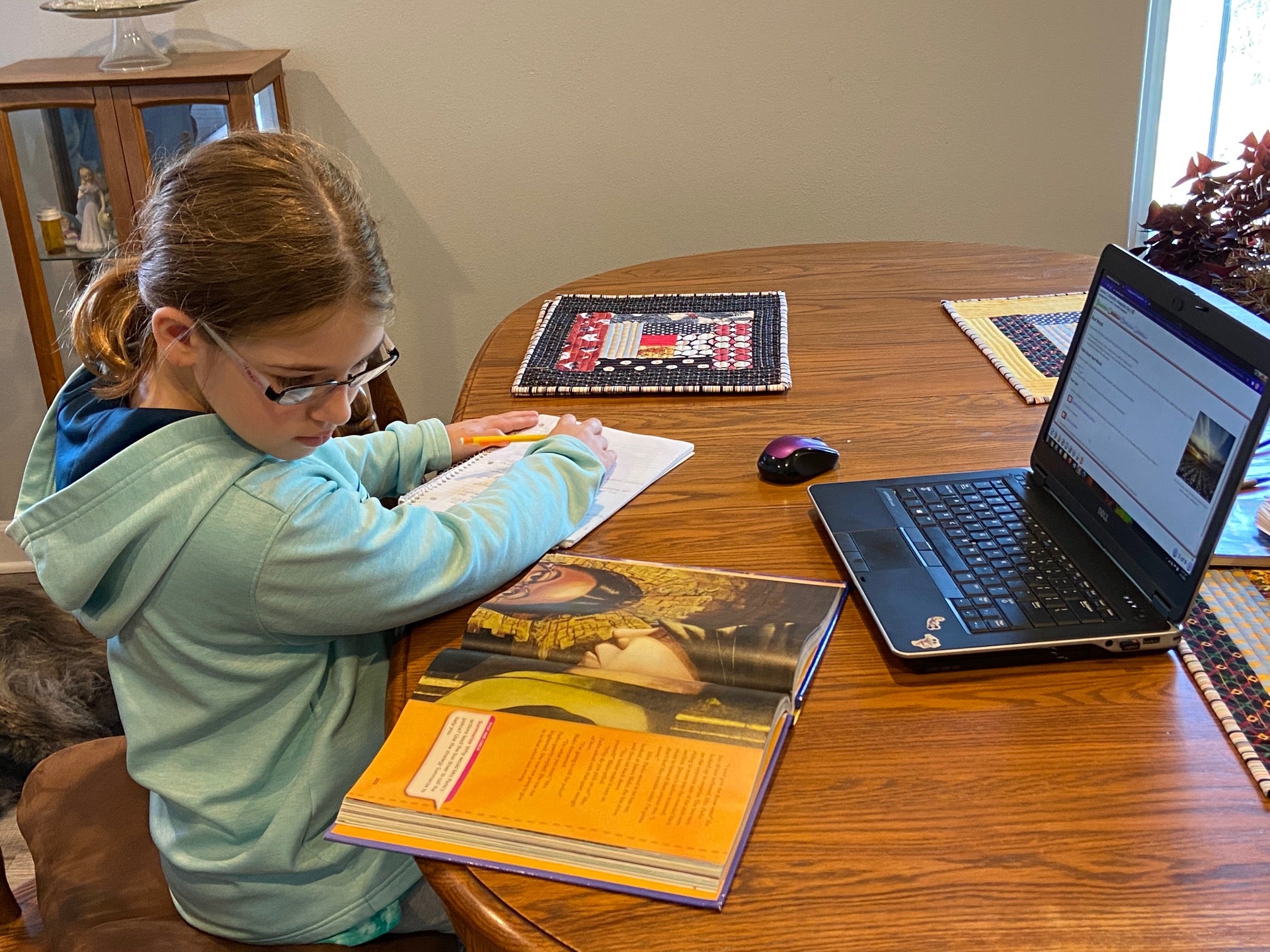
At the School District of La Crosse, that means the Coulee Region Virtual Academy, set up in the spring of 2020 in response to the pandemic, will continue at least into next year. The public online charter school is a partnership between five districts in the county that offers online-only learning.
“We knew that there were going to be a number of people that wanted to continue in a virtual environment,” said Michael Lichucki, director of curriculum, instruction and assessment for the School District of La Crosse. “We have some students that were apprehensive of coming back even in the non-pandemic times, just the anxiety of being in school, that when that was taken away, they were able to really shine academically.”
Lichucki noted that once the risk of COVID-19 drops, Coulee Region Virtual Academy students will also be able to supplement their online learning with face-to-face help as needed.
“Some of those students that need extra support, they don’t have to be virtual all the time, they can come in and receive that in-person support along with the flexibility of online,” he said. “That hybrid approach — going forward, I think it’s here to stay.”
For the Ehle family, one of the things that will make online learning sustainable for Cate and Becca is that a lot of their social activities happen outside school. Both are involved in 4H and their local church. Becca takes dance classes several days a week, while Cate is on the community swim team, which is getting ready to resume practice. They’ve been able to keep up with some of their Stoughton friends, as well.
“I will not deny, my kids are social butterflies,” said Ehle. “They have said that we kind of miss the social aspect of school, but at the same time, we really enjoy doing this, we’re glad that we’re doing this, we’re learning a lot.”
Ehle cautions that while virtual learning has worked well for her family, it’s a time commitment that isn’t feasible for every family — especially as workplaces may start transitioning remote employees back into offices.
“I’m part of a Facebook group for Connections Academy parents, and it’s interesting seeing parents complain about how it’s so much more involved for the parents than they thought it would be,” she said. “That’s one thing that parents need to understand — this is not necessarily, ‘I enroll my kids, and then, here, you go and do your stuff’ — as a learning coach, you’re very involved.”
Wisconsin Public Radio, © Copyright 2025, Board of Regents of the University of Wisconsin System and Wisconsin Educational Communications Board.
